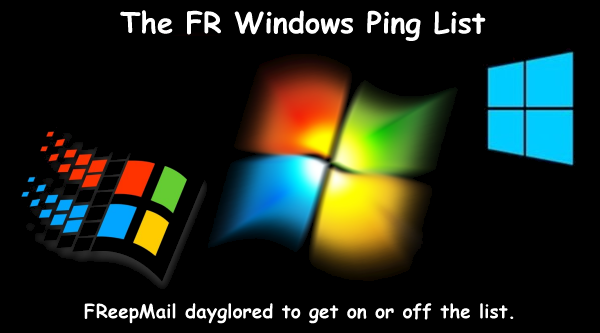
Posted on 04/08/2015 5:16:55 PM PDT by dayglored
Today we announced new container technologies as well as Nano Server, a purpose-built operating system designed to run born-in-the-cloud applications and containers. As customers adopt modern applications and next-generation cloud technologies, they need an OS that delivers speed, agility and lower resource consumption.
Nano Server is a deeply refactored version of Windows Server with a small footprint and remotely managed installation, optimized for the cloud and a DevOps workflow. It is designed for fewer patch and update events, faster restarts, better resource utilization and tighter security. Informed directly by our learnings from building and managing some of the world’s largest hyperscale cloud environments, and available in the next version of Windows Server, Nano Server focuses on two scenarios:
1. Born-in-the-cloud applications – support for multiple programming languages and runtimes. (e.g. C#, Java, Node.js, Python, etc.) running in containers, virtual machines, or on physical servers.
2. Microsoft Cloud Platform infrastructure – support for compute clusters running Hyper-V and storage clusters running Scale-out File Server.
Nano Server will allow customers to install just the components they require and nothing more. The initial results are promising. Based on the current builds, compared to Server, Nano Server has:
...
(Excerpt) Read more at blogs.technet.com ...
All sorts of wonderfulness in a very small package for cloud use. Those of us who groaned when having to run Windows Server in a cloud VM have something to rejoice about!

The Register - Microsoft goes cloud KERR-AZY, chops Windows Server to bits

Let me guess - they threw out all the obscure features no one ever uses?
They really did cut this down to the bone. But the fact that the resulting Nano server runs fast and small, has a smaller attack surface and fewer vulnerabilities, and can be deployed in a less expensive VM shell in the cloud, all makes for a really exciting prospect for those of us moving servers into the cloud.
Very nice indeed.
Get- is the new right-click.
I don’t suppose you could install your own SSHd, and have it automatically run PowerShell upon logging in? Or default to the standard Command Processor? (or even go for broke, and install one of the many UNIX shells for Windows—the Bourne shell comes to mind)
The SSHd installer would have to be self-hosted (no MSI, obviously)
I generally have used the sshd that comes with Cygwin, which is bog standard OpenSSH and works quite well. OTOH, it assumes Bash for its shell, and while you may be able to spawn PowerShell automagically, I don't think that's what you're suggesting.
Certainly seems that somebody ought to have done this already....
Speaking as a simple country bumpkin who has limited access to the internet (Wild Blue or 4G cell), I know that connectivity is not guaranteed at any time or for any duration. The only thing I would consider reliable is that which is local.
Remote storage and processing are nice, I just have trouble trusting them.
It’s intended to be managed with Powershell, which I think means from a Powershell session on the local machine. From there you can open an interactive Powershell session on the remote machine with Enter-PSSession.
Ah, okay. That’s slick!
Your skepticism is mostly justified, when it comes to our typical consumer endpoint access. But the servers out there are surprisingly robust, and the connectivity is generally very good (major backbone outages aside).
These little server instances won't replace the big honking local network machines that do yeoman duty for a corporation -- those do indeed have to be local. But services that can be effectively put into the cloud, for employees who are traveling, or working at home, or for the general public, will benefit from lightweight server platforms like this.
Also, the small size and subsequent small cost means that it now will be economical to put things in the cloud that would go well there but cost too much if the server platform was the big honking one we grew up with.
Connectivity is enhanced by using Powershell for management because it’s all done via HTTP/HTTPS, which is much more forgiving of network latency than the RPC connections used by RDP and MMC management consoles. It’s also on a fixed port (unlike RPC) so it’s easy to set up the firewall for.
BTW, since PS itself runs as a bog-std Win32 console app (the difference: fancy colours/type when invoked by itself), I think it would be nothing more than setting up a shell script/batch file that spawns PS at startup...
This is PowerShell running from the Korn Shell/UWIN (by Southwestern Bell)

Which means that a shell script executed at startup, should be all that is needed to spawn PS from an OpenSSH session...

No, that is NOT fake; as PS1.0 is a .NET2.0 managed app, all that is needed to run it, is to patch the hotfix installer (modify the INF, then slip the original *signed* copies *while* CryptSvc is starting up), related files, and PowerShell.exe. (change subsystem version from 05 00 01 to 05 00 00)
IOW, managing a Windows .NET Nano server via SSH *may* yet be possible.
MS continues to innovate. Having taken Server 2012 MCP courses and exams in the very recent past, I can attest to Microsoft’s attention to PowerShell in all things. I work almost exclusively in PS now for administrative work and very rarely do I log into a server GUI.
Server Core is an excellent revision of the Server OS and requires very little maintenance. I’m glad to see they’re pushing on with it.
Disclaimer: Opinions posted on Free Republic are those of the individual posters and do not necessarily represent the opinion of Free Republic or its management. All materials posted herein are protected by copyright law and the exemption for fair use of copyrighted works.